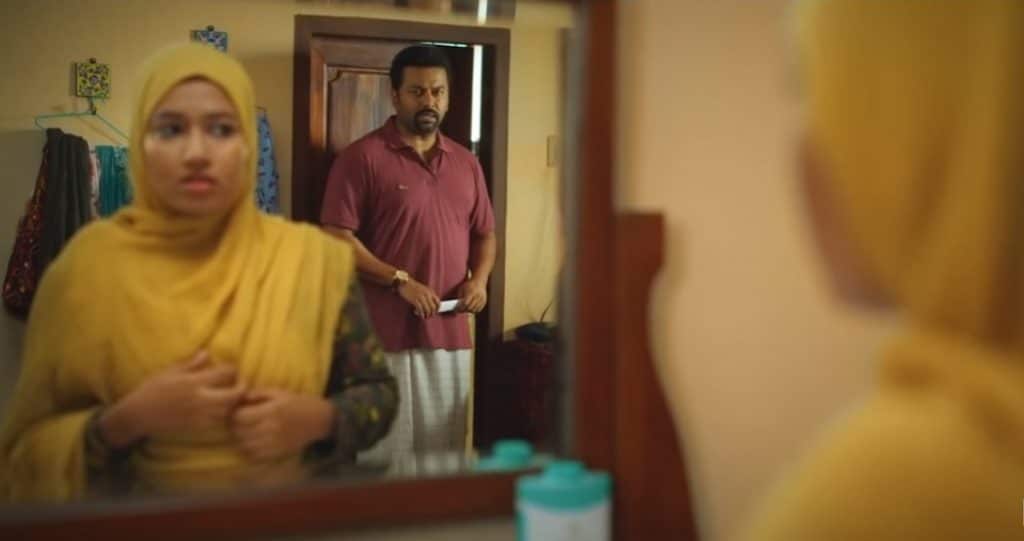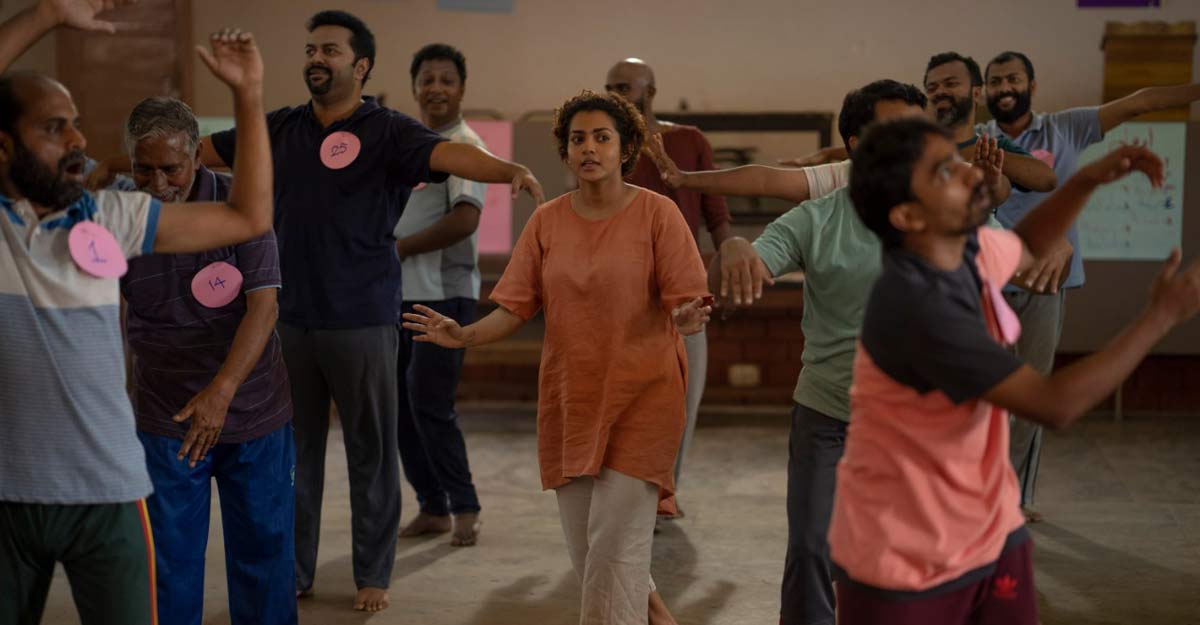
Zakariya’s Halal Love Story invoked a lot of discussions and debates even before the release and just after the release. The primary discussions were mainly revolved around the political premises of the creators and the involved a lot of anxieties on the potential outcome of the film. The discussions after the film resulted in a general notion of relief, maybe because it didn’t involve in legitimizing any sort of politics it was accused of earlier. Most of the earlier political anxieties either re-appeared or transformed into a sort of ‘transparent’ technical critique of the film. Most of these discussions lacked an experiential account of ‘seeing’.
Presenting a Muslim everyday, which was alien to the mainstream audience to the date, was one premise where most of the discussions happened. Many criticisms remarked that since it involved ‘too much Muslimness’ it is unrelatable to a mainstream majority outside the Muslim ecology. But this criticism lacks historical sincerity since the experiencing of the Other was never a major concern for the mainstream majority, who otherwise experience cinema from various cultural premises, hosts International film festivals, and enjoys the cinematic experience across the globe. Thus, the ‘Muslimness’ of the cinema in a social premise where the representation of the community often demands compromises and stereotypical compartments, can be viewed as a progressive attempt to claim the mainstream spaces, which were unapproachable to many, for a long time. There are scenes in the cinema where this logic of ‘mainstreamness’ itself is problematized in a humoristic way.
The film revolves around the lives of active members of a cadre organization who takes a brave decision to produce a cinema which they hope will help in reducing the prejudices and misconceptions of the society towards the Muslim community, which was rising in the post 9/11 period. The process involves a lot of confusion, anxieties, and complexities for the idea of filmmaking has a strongly contested and conflicting history in Islamic tradition. There’s this reference to a Hadith (secondary scripture of Islam) partly mentioned in the film, which says the prohibited acts are clear and so are the permissible acts, But there’s a grey area that ultimately demands strong ethical command and clear intention from the side of a believer.
By taking this edict into the hearts, the characters try to create a cinema which they believe would produce the desired results. The act of film making, from the arrangements of funds to finding actors, is depicted as deeply ethical. There’s a scene when Thoufeeq Sahib (Played by Sharafudheen) rejects bank interest for the production fundraising even when they were not financially stable. The reason he states for the rejection attracts attention since it demands almost impractical, ideal-ethical notions, at least for a mainstream spectator. The same essence is explicitly represented in various occasions afterward, from the scene of choosing the pair of protagonists till the conflict at the end. These decisions, strongly rooted in an Islamic ethos, invites the hatred of the director, who himself is a non-practicing Muslim, and often ends in creating confusion and conflicts. The workers of the organization accept this act of film making with devotion like they perform any other religious act. This notion creates another set of conflicts for the director, who pursues a professional path, which involves rejection and negation. There’s an instance where Thoufeeq Sahib asks Siraj, the director (Played by Joju) that whether we can make a film without hurting anyone. The same ethical conflict is evident after the selection process for actors finishes, where we can see one rejected actor reassuring Thoufeeq Saheb and Raheem Saheb (Played by Nazer Karutheni), by saying that this rejection doesn’t hurt him since the act was very devotional. All these scenes, where the ethical command takes an upper-hand over the material demands, makes the plot very intriguing.
The movie also shows us the personal tensions and the patriarchal discontents in the household of Shareef (Played by Indrajith) and Suhara (Played by Grace Antony). The performance of Grace Antony is so satisfying that it sometimes even overshadows the experienced presence of Indrajith.
These discontents unfold interestingly, through the cinema in the cinema, which vaguely reminds us of a similar tension in ‘Through the Olive Trees’ of Abbas Kiarostami where the ‘real’ conflict overlaps with the ‘cinematic’. The importance of conversations and non-sexual intimacy, which lacks in the community household, is also portrayed effectively without falling into the tropes of ‘saving the Muslim woman from the Muslim man’. But the movie loses control in convincingly tracing the sub-plots. The sub-plots, whether it’s the family of the director or the plot progression of the cinema inside the cinema, fails to complement the progression of the plot convincingly. It leaves us with certain uncertainties and obscurities regarding these sub-plots.


The cinema tries to trace a specific time period of a Muslim everyday. Where they creatively engage with the cultural-literary sphere by invoking the symbols and images of cosmopolitan Islam. This also included constant anti-imperial demonstrations, whether it’s the U.S or Coca Cola, rooted in strong ethical grounds despite the logical and practical outcomes. There are also scenes which hint to an often ignored history of ‘seeing’ international cinema from the cultural geography of Malabar.
The practical premises of the time in contrast with the ethical sensibilities of the workers/believers are effectively captured with shades of humour at regular intervals. For a Muslim, The question of what to see and what not to see is always rooted in the textual edicts and the relevant conclusions inferred from them. This self-censoring is an ethical act for a believer. But in a deeply commercialized and capitalized world of Images, this act of self-censoring is often conceived as an impractical, ideal aspiration. Therefore, a puritan aspiration to create such an ethical compilation of moving-image is comically perceived by the ‘mainstream’. The last debate between Thoufeeq Sahib and Director Siraj is an evident example of a conflict, or maybe an example of helplessness. But the movie, despite all its limitations, tries to engage with this question honestly and presents an enjoyable piece of art with satisfying representations.
Afeef Ahmed is a student of English literature at Hindu College University Of Delhi.



